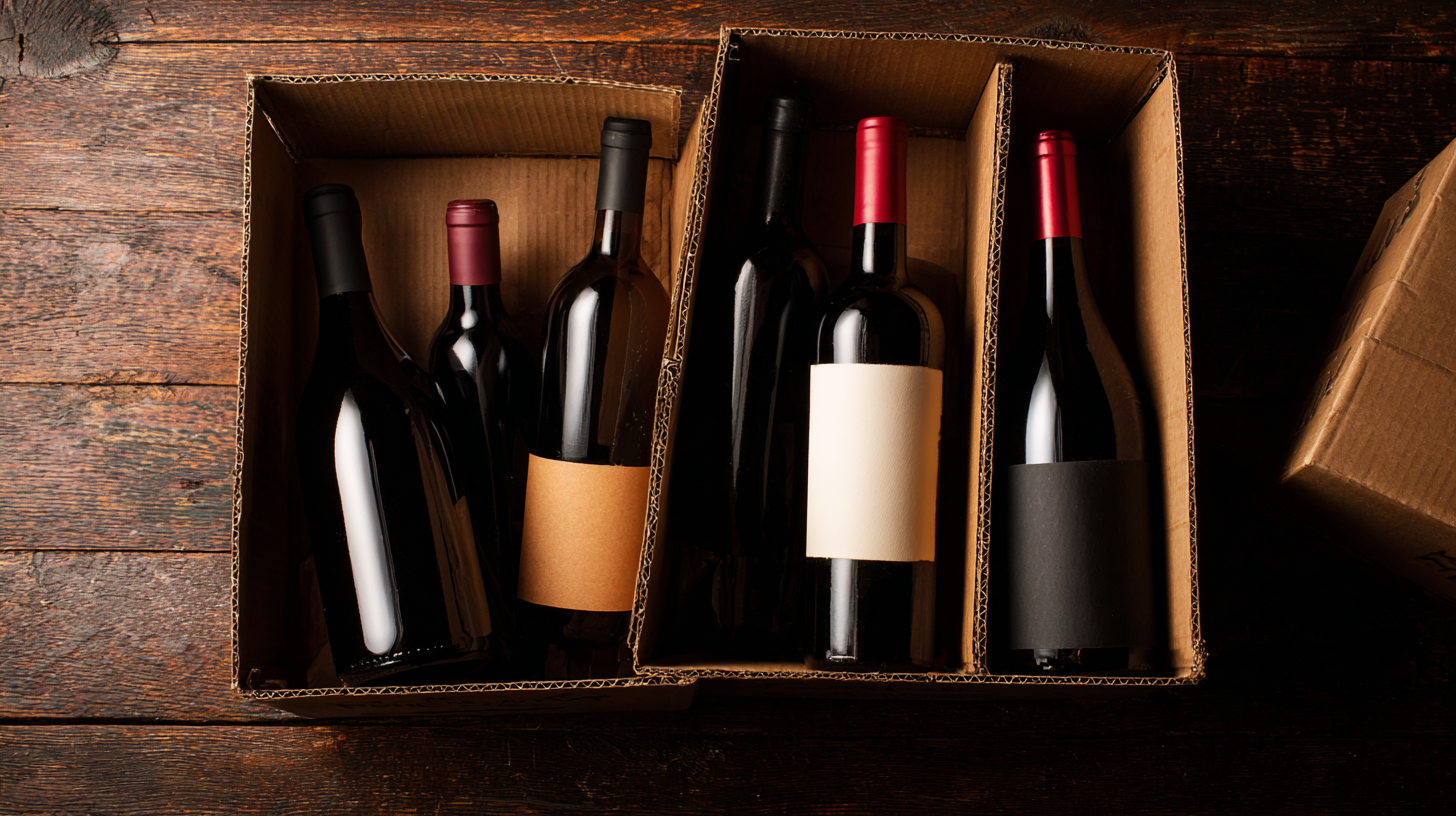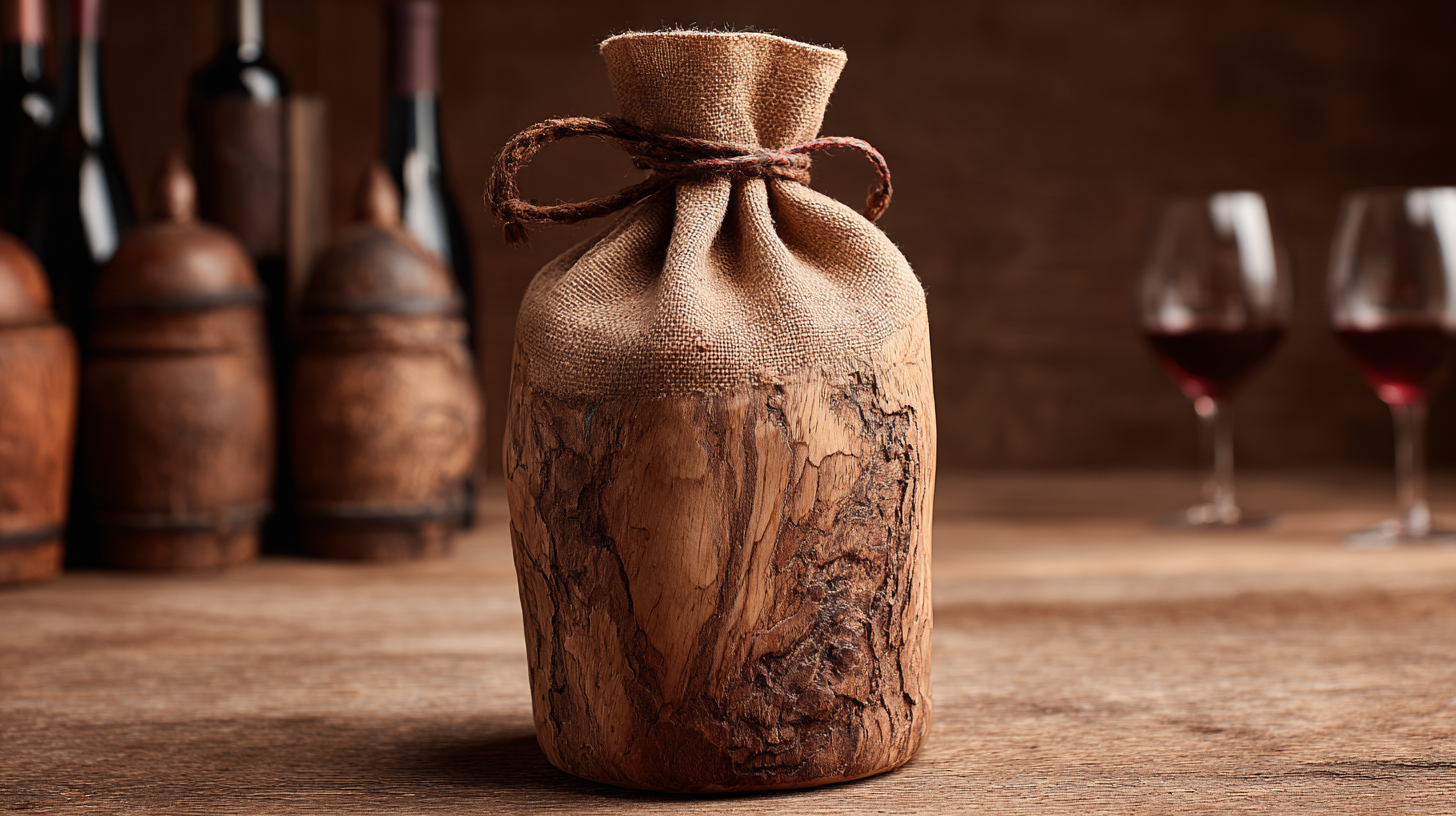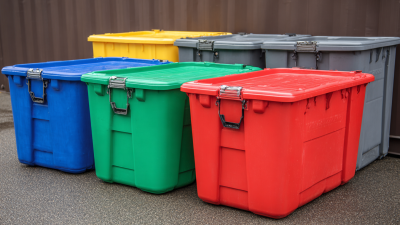585.204.6770
sale@sanblueplastics.com
Your Source for Trays!
5 Essential Tips for Choosing the Perfect Pulp Wine Shippers
In the ever-evolving landscape of wine distribution, the choice of shipping methods plays a crucial role in ensuring the quality of the product. According to a recent report by the Wine Industry Network, nearly 60% of wine producers have noted an increase in demand for sustainable packaging solutions, highlighting the importance of environmentally-friendly options in today's market.

Among these, pulp wine shippers have emerged as a favored choice for many wineries due to their biodegradable properties and protective qualities. As the wine industry continues to shift towards sustainability, it is vital for both wineries and retailers to understand how to select optimal pulp wine shippers that not only safeguard the wine but also align with eco-conscious consumer preferences.
This blog aims to provide essential tips on selecting the perfect pulp wine shippers, ensuring that your prized bottles reach their destination in pristine condition while honoring the environment.
Understanding the Importance of Reliable Pulp Wine Shippers for Quality Preservation
When it comes to shipping wine, the choice of packaging is crucial for maintaining quality. Reliable pulp wine shippers offer superior protection against temperature changes and physical impacts, ensuring that the delicate flavors and aromas of your wine remain intact during transit. This is especially important for wine enthusiasts and retailers alike who understand that even minor fluctuations in temperature can compromise the quality of the product.
One essential tip for selecting the right pulp wine shipper is to prioritize sustainability. Look for shippers made from recycled materials, which not only minimizes environmental impact but also guarantees durability. Additionally, consider the size and design of the shipper. Opting for a shipper that snugly fits your bottles will reduce movement during transportation, further safeguarding against breakage.
Another vital consideration is the insulation properties of the shipper. A good pulp wine shipper should provide ample insulation to protect against extreme temperatures. When shipping wine across longer distances or during seasonal transitions, this feature is invaluable in maintaining the wine's quality. Always check the insulation ratings and user reviews to ensure you are investing in a reliable product that meets your specific shipping needs.
Key Features to Look for in Pulp Wine Shipping Materials for Sustainability
When selecting pulp wine shipping materials, sustainability should be at the forefront of your decision-making process. One key feature to consider is the use of recycled content. Pulp materials derived from post-consumer waste not only reduce the environmental impact but also support the circular economy. Look for suppliers who prioritize recycled pulp, ensuring that every shipment contributes to recycling efforts and minimizes landfill waste.
Another critical aspect is the biodegradability of the packaging. Choosing materials that can decompose naturally without harming the environment is essential for eco-conscious shipping. Check if the pulp wine shippers are certified compostable or biodegradable. This feature not only aligns with sustainable practices but also appeals to environmentally aware consumers who prefer brands that reflect their values. Additionally, opt for shippers that offer innovative designs to maximize protection while using minimal material, supporting both efficiency and sustainability in wine shipping.
Key Features of Pulp Wine Shippers for Sustainability
Analyzing Cost vs. Quality: The Economics of Choosing Pulp Wine Shippers
When selecting pulp wine shippers, understanding the economics of cost versus quality is crucial. High-quality shipping materials can initially seem more expensive; however, the long-term benefits often far outweigh the upfront costs. Investing in durable pulp wine shippers reduces breakage and spoilage risks, ensuring that your wines arrive at their destination in pristine condition. This not only enhances customer satisfaction but also protects your brand's reputation.

To navigate this balance, consider the first tip: assess your shipping volume. If you're shipping large quantities, bulk purchasing may lower your cost per unit, allowing for a more substantial investment in quality materials. Additionally, examining the shipping environment—whether your wines need to endure transport in extreme temperatures or rough handling—can guide your choice of shippers.
Moreover, prioritize versatility in your shippers. A good tip is to choose pulp wine shippers that can accommodate various bottle shapes and sizes. This flexibility minimizes the need for multiple packaging solutions, thereby streamlining the shipping process and saving money in the long run. Ultimately, by focusing on both cost and quality, you can select the perfect pulp wine shippers that will meet your unique needs.
Exploring Industry Standards and Regulations for Wine Shipping Solutions
When selecting the right pulp wine shipper, understanding industry standards and regulations is crucial. The wine shipping industry is governed by numerous laws that vary by region, impacting everything from packaging materials to temperature control during transit. Many states in the U.S. have specific legal requirements regarding the use of biodegradable or recyclable materials in shipping. Additionally, shippers must adhere to temperature regulations to prevent spoilage, meaning that choosing the right materials can have a direct impact on the quality of the wine upon arrival.
Moreover, the shipper’s compliance with federal and state regulations not only ensures legal adherence but also demonstrates reliability and consistency. As the wine industry continues to grow, maintaining high shipping standards becomes imperative for safeguarding the product and enhancing the customer's experience. It’s wise for businesses to partner with shipper manufacturers who are knowledgeable about these regulations, ensuring that they select pulp wine shippers that meet environmental standards while providing adequate protection and insulation for the wine during transport. This diligence contributes to building customer trust and promoting sustainability within the industry.

Comparative Review: Pulp Wine Shippers vs. Traditional Shipping Methods Insights
When it comes to shipping wine, the method you choose can significantly impact the quality of your product upon arrival. Pulp wine shippers, gaining traction in the industry, offer unique advantages over traditional shipping methods such as cardboard boxes. Made from recycled paper materials, pulp shippers are not only environmentally friendly but also provide superior insulation and cushioning. This is crucial in protecting delicate bottles from temperature fluctuations and vibrations during transit, ensuring that your wine arrives in pristine condition.
In contrast, traditional shipping methods often rely on foam or cardboard, which may not offer the same level of protection. While these methods are widely used and can be cost-effective, they often fall short when it comes to safeguarding valuable wines. It's also worth noting that pulp wine shippers are designed to be reusable and recyclable, presenting a sustainable solution for eco-conscious wine merchants and consumers alike. By understanding the benefits of pulp wine shippers, you can make a more informed decision that enhances both the shipping experience and the quality of the wine delivered.
5 Essential Tips for Choosing the Perfect Pulp Wine Shippers - Comparative Review
| Criteria | Pulp Wine Shippers | Traditional Shipping Methods |
|---|---|---|
| Protection Level | High, designed for fragile items | Moderate, risk of breakage |
| Sustainability | Eco-friendly materials | Often less sustainable |
| Cost-Effectiveness | Generally higher upfront cost | Lower upfront cost, potential for damage |
| Customization Options | Available for branding | Limited customization |
| User Experience | Simplified handling, lightweight | May require more effort for packaging |
Related Posts
-

Unmatched Quality: China's Premier Large Plastic Bins Set Global Standards in Durability and Design
-

Innovative Storage Solutions Exploring Alternatives to Plastic Bins with Lids
-

Maximizing Longevity and Reducing Maintenance Costs with Best Vacuum Forming Plastic Innovations
-

The Ultimate Guide to Choosing the Best Plastic Bins with Lids for Your Storage Needs
-

Unmatched Quality with Best Spill Tray from Trusted Chinese Manufacturers
-

10 Best Corrugated Trays You Should Consider for Your Business
